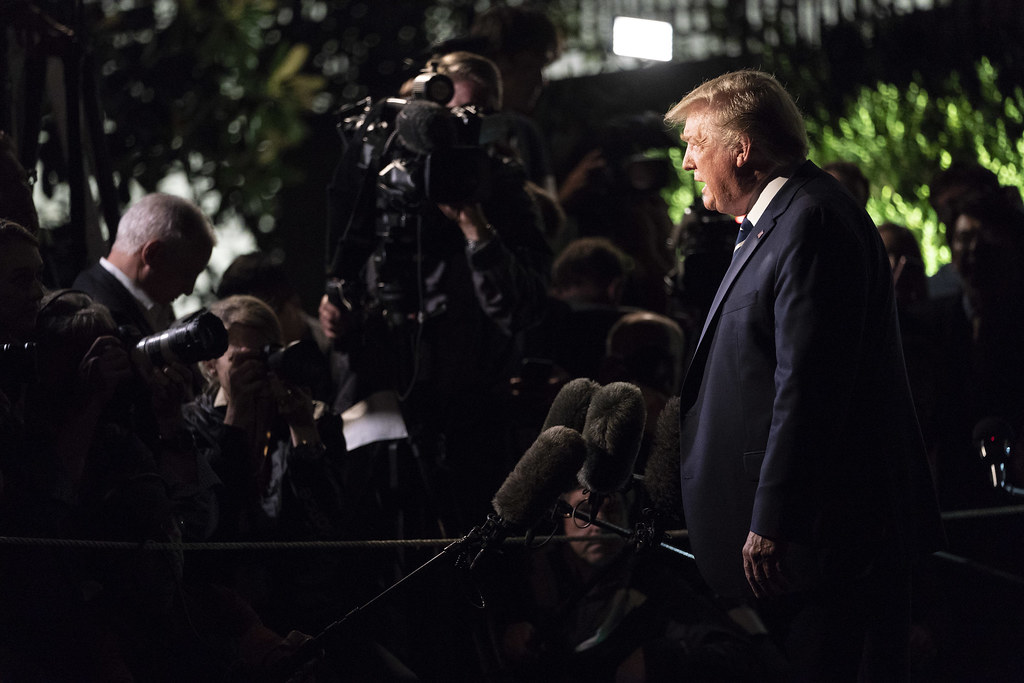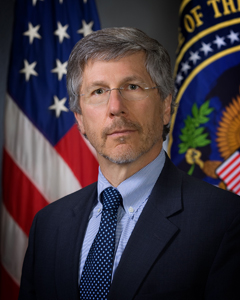What the Latest Reports Say About the Whistleblower Complaint
More information is coming out in the media about the whistleblower complaint that Acting Director of National Intelligence (DNI) Joseph Maguire blocked the inspector general of the intelligence community (ICIG) from transmitting to the congressional intelligence committees. If the speculation is accurate, Maguire’s actions, and the legal defense of those actions by Office of the Director of National Intelligence (ODNI) General Counsel Jason Klitenic, may have a firmer legal foundation than has so far been apparent.

Published by The Lawfare Institute
in Cooperation With

More information is coming out in the media about the whistleblower complaint that Acting Director of National Intelligence (DNI) Joseph Maguire blocked the inspector general of the intelligence community (ICIG) from transmitting to the congressional intelligence committees. If the speculation is accurate, Maguire’s actions, and the legal defense of those actions by Office of the Director of National Intelligence (ODNI) General Counsel Jason Klitenic, may have a firmer legal foundation than has so far been apparent. (For those who care about such things, as Klitenic’s predecessor I do have some interest in defending his office, but this piece reflects my own views and not those of the government.)
Some reports suggest that the complaint related, at least in part, to promises President Trump may have made to a foreign leader, involving Ukraine. Many have assumed that the allegation is that the president promised Ukraine’s new president, Volodymyr Zelensky, that he would release $250 million in arms to Ukraine if that country would open an investigation of the family of the leading Democratic candidate to oppose Trump in the 2020 election, Joseph Biden. The Wall Street Journal reported today that Trump brought up the matter of investigating Biden’s son eight times in a single call with Zelensky in July 2019. Contrary to other reports, however, the Journal said that Trump promised the Ukrainians nothing. This apparent discrepancy underlines the confusion of the situation. While such an offer, if made, would raise serious questions—and indeed might violate federal bribery statutes, though the application of those criminal statutes to the president is unclear—the argument that the law did not require the DNI to transmit the complaint to Congress, set out in Klitenic’s letters to Intelligence Committee chair Adam Schiff, is not a frivolous one.
As I outlined here, the Intelligence Community Whistleblower Protection Act provides that if the ICIG determines that a complaint about a matter of “urgent concern” is credible, he sends it to the DNI, who within seven days “shall ... forward” it to Congress together with any comments. But a matter of “urgent concern” is defined as “a serious or flagrant problem, abuse, violation of law or Executive order, or deficiency relating to the funding, administration or operation of an intelligence activity within the authority of the Director of National Intelligence involving classified information” (emphasis added). The alleged offer by the president, while perhaps criminal and possibly impeachable, does not obviously relate to any intelligence activity within the DNI’s authority.
Still, some have argued that the statute does not allow the DNI to make his own determination of the applicability of the statute but, instead, requires him to accept the ICIG’s determination that something is a matter of urgent concern. In this case, however, it appears that the DNI went to the Department of Justice’s Office of Legal Counsel (OLC) for an opinion. OLC opinions are considered to be binding and authoritative interpretations of law within the executive branch. So if OLC in fact formally opined that this complaint was not an “urgent concern” as defined in the statute, the DNI could take the position that the ICIG must follow that interpretation.
Still, we know now that the ICIG also asked permission to transmit the complaint to the intelligence committees apart from the statute and was told he could not do so for reasons of privilege. Here again, a claim that the president’s communications with foreign leaders should be protected by a privilege is not, in the abstract, a frivolous one. Indeed, when Congress sought to obtain memoranda of Trump’s conversations with Russian President Vladimir Putin, White House Counsel Pat Cipollone cited a long history, going back to George Washington, of presidents declining to reveal such communications. The extent of such a privilege—and in particular whether it would protect communications that might constitute bribery—is untested. But if the White House asserted such a privilege, the ODNI would be bound to honor it.
Make no mistake about it. This allegation is a grave one. Even if there is a plausible legal basis to defend withholding the whistleblower’s complaint, if the president has offered financial incentives in an attempt to enlist a foreign power against his political opponents, the public needs to know—by one means or another.




-final.png?sfvrsn=b70826ae_3)
